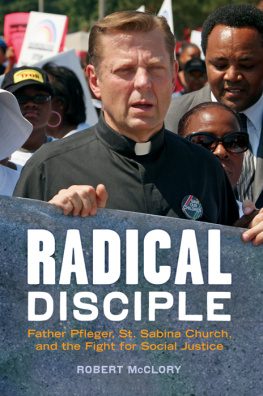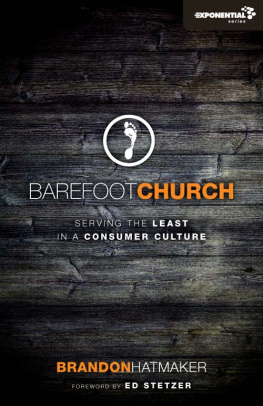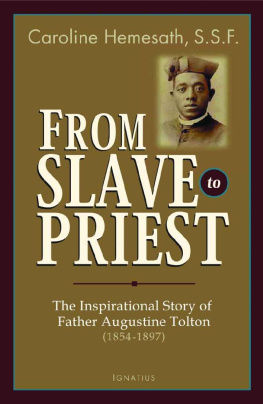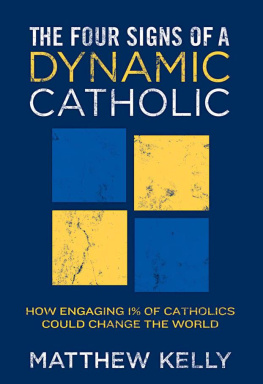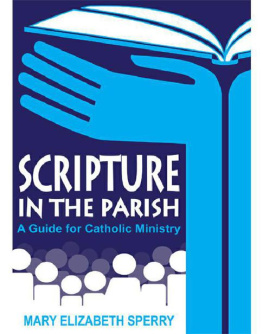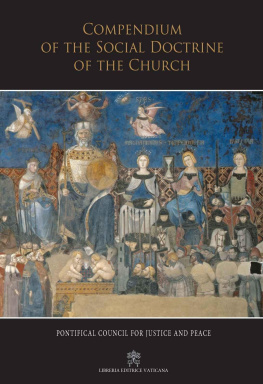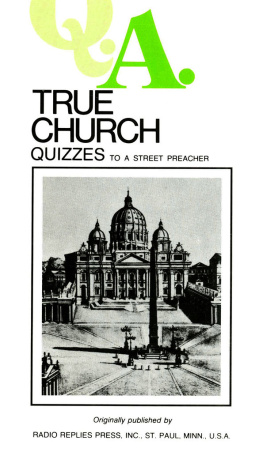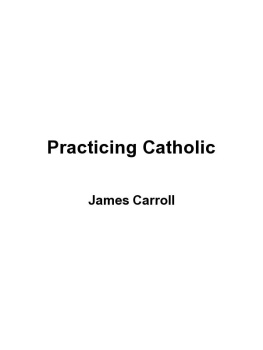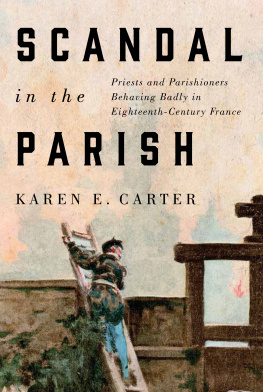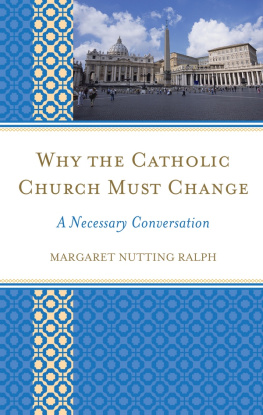Library of Congress Cataloging-in-Publication Data
McClory, Robert, 1932
Radical disciple : Father Pfleger, St. Sabina Church, and the fight for social justice / Robert McClory.
p. cm.
Includes bibliographical references and index.
ISBN 978-1-56976-528-9 (hardcover)
1. Pfleger, Michael. 2. Church and social problemsCatholic Church. 3. Social justice
Religious aspectsCatholic Church. 4. St. Sabinas (Church : Chicago, Ill.) 5. Chicago (Ill.)Church history. I. Title.
BX4705.P44M33 2010
261.8092dc22
[B]
2010018028
Interior design: Jonathan Hahn
2010 by Robert McClory
All rights reserved
Published by Lawrence Hill Books,
an imprint of Chicago Review Press, Incorporated
814 North Franklin Street
Chicago, Illinois 60610
ISBN 978-1-56976-528-9
Printed in the United States of America
5 4 3 2 1
To the Faith Communities of St. Sabina Church
Present, Past, and Future

CONTENTS

If there is no struggle, there is no progress. Those who profess to favor freedom, and yet deprecate agitation, are men who want crops without plowing up the ground. They want rain without thunder and lightning. They want the ocean without the awful roar of its many waters. This struggle may be a moral one; or it may be a physical one; or it may be both moral and physical; but it must be a struggle. Power concedes nothing without a demand. It never did and it never will.
F REDERICK D OUGLASS
ACKNOWLEDGMENTS

I MET M ICHAEL P FLEGER in 1976 when he was a newly ordained priest, and I was immediately impressed with his energy and creativity. I was inclined to attribute much of his enthusiasm to youth and inexperience, and I expected it to diminish with time. But when I visited with him a few years later, the zeal was still there, undiminished. And even after five years as pastor, he was as on fire as ever. Surely, I thought, no one, priest or layperson, could stay as engaged as he much longer, especially in view of the problems of the community. Yet ten years later he was still going, as strong as before, stronger in fact. Pastor Pfleger, it seemed to me, had become a veritable sacerdotal Energizer Bunny.
Several years ago an old friend, Fred Brandstrader, suggested I write a book about Pfleger and his parish, St. Sabina. It was an intriguing idea, and it marinated in the back of my brain for a long time. One day in 2007, I asked Pfleger if he or anyone else was chronicling the story. No one, he said, nor did he seem wildly excited when I offered to take on the task. Nevertheless, he agreed to cooperate and opened up his archives to me, such as they were. We met many, many times for interviews, and I always found him open, candid, and almost guileless in his responses, though his memory of dates and years left something to be desired. After his encounter with the press in the aftermath of his filmed imitation of Hillary Clinton in May 2008, our discussions and my research became more intense. I felt a kind of urgency to tell the story of this person and this church.
So I am first of all grateful to Father Mike Pfleger for opening his door and his life to me. I came to look forward to our meetings. They were not only enlightening, they were thoroughly enjoyable, sometimes hilarious. I found I could disagree with him and challenge his ideas at times without breaking our dialogue. I am grateful second of all to Vince Clark, the pastors veteran aide who consistently went well beyond the call of duty in returning phone calls, providing ready access to other key persons in the parish, and responding to my sometimes outlandish requests with a laugh and a booming, No problem! Also at the staff level, I thank Randall Blakey, Kim Lymore, Leonard Langston, and Ann Gaskinand of course Cory Williams, who makes St. Sabina that rarest of twenty-first-century institutions where phone calls are answered by a human voice and the flow of communication proceeds efficiently and without inhibition.
It was an honor for me to become acquainted with and learn so much from many pillars of the parish whose dedication to St. Sabina goals are of the highest order. The powerful women make things happen, like Jacqui Collins, Helen Dumas, April Dumas, Sharon Tillmon, Julie Welborn, and Lisa Ramsey, to name a few. Capable men take on heavy responsibility and are in for the long haul: Deacon Len Richardson, Rickey Harris, Gerald Stewart, Isadore Glover, Bob McCoy, and Bill Hynes.
To the many other members of the community who invariably greeted me like a long lost son at the Sunday service, I am grateful. I wish to thank also former Sabina members, like Chris Mallette and Virgil Jones, who spoke candidly of their experiences, as well as former members from a much earlier era, including Erv Schultz and Dee Foertsch, who provided helpful context information.
Thanks too to those who provided ideas and suggestions in the early research regarding this book project: Jason Bitner, Tom Artz, Dan Woods, Mike Leach, Bob Hercules, and Rick Kogan. Very helpful throughout the whole process was my regular Saturday board of advisers, including Bob Heineman, Lawrence McCarthy, Neil Gambow, Ray Bayless, Richard Adams, Jeff Shepard, Thom Clark, and Dan Maloney.
I appreciate the kindness, cooperation, and valued suggestions my editors Cynthia Sherry and Michelle Schoob of Chicago Review Press provided during the development of the book, as well as the input from other editors, readers, and Chicago Review Press staff members who gave of their time and talent.
At the summit of my appreciation list is my wife of thirty-nine years, Margaret, who has been editor, inspiration, critic, encourager, companion, and counselor of everything Ive done in journalism and just about everything else. Alongside her as essential readers, editors, commentators, and personal supporters for the project are my daughter Jennifer, her partner Sarah Klein, and our beloved friend Judy Schoenherr.
PROLOGUE

W HEN R EVEREND M ICHAEL P FLEGER mocked Hillary Clinton at a church service during the 2008 presidential primary, his remarks were filmed and made their way onto YouTube and all the major television outlets in the United States. The result was a national broadside of invective against the priest. He was labeled ignorant, arrogant, caustic, antagonistic, and racist. And that was just one persons reaction. He was also called a white nigger, and many hoped he would be yanked out of his parish and eventually burn in hell. The nature of his remarks notwithstanding, the public reaction seemed to me an exercise in overkill. Ive known Michael Pfleger since he came to his parish and had some experience myself with St. Sabina Church long before he arrived, so it was time, I thought, to look at the bigger, fuller picture.
My second appointment as a priest of the Catholic Archdiocese of Chicago was to St. Sabina Church on the South Side, and I was excited at the opportunity. The year was 1964, and it was well known that Sabina, one of the largest and busiest churches in the whole city, was facing a challenging crisis. I had been there less than a day when a parishioner introduced himself and said, Father, were glad youre here, but you need to know

